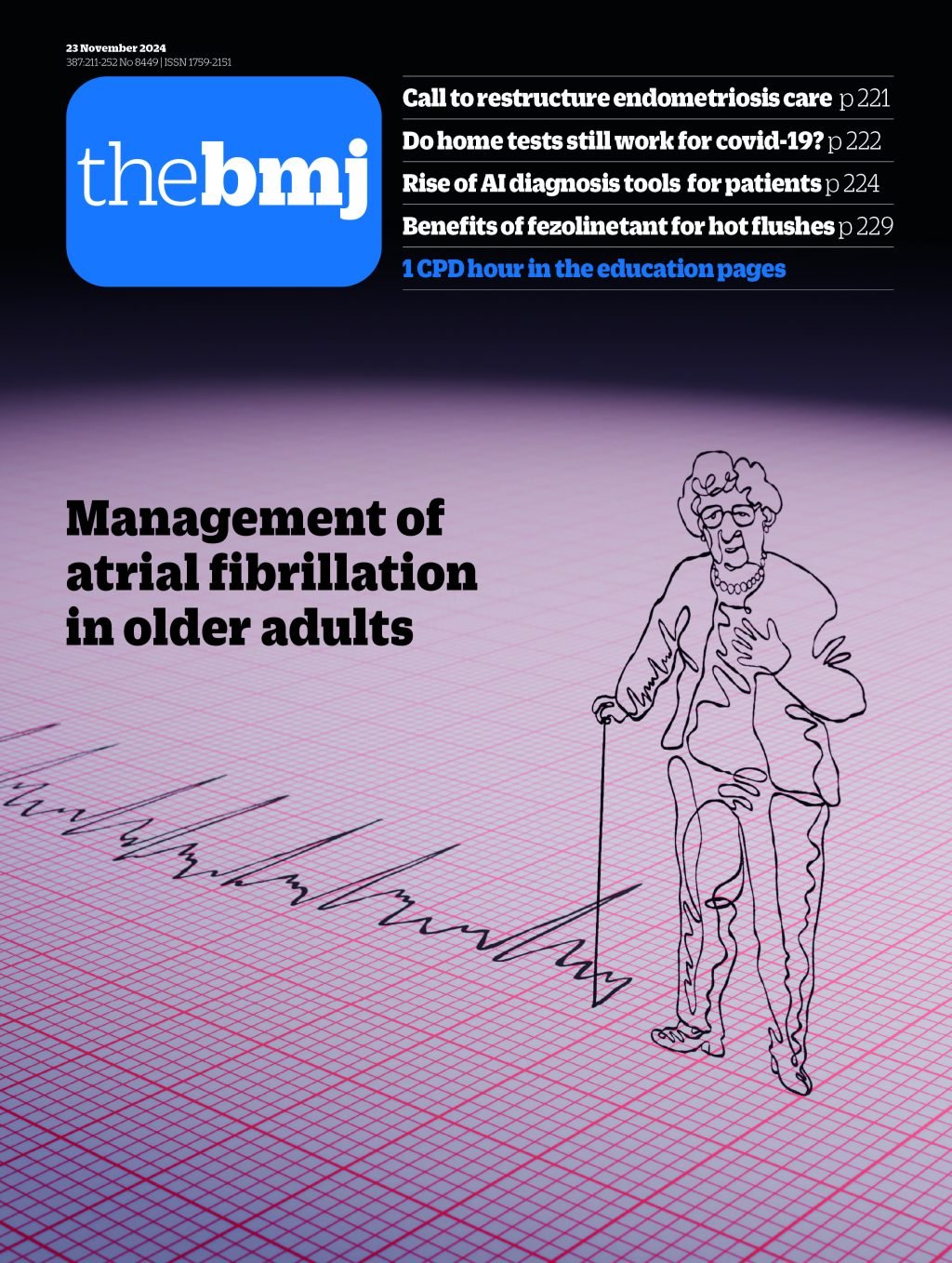
- Henry John Woodford, consultant geriatrician1,
- Dan McKenzie, consultant cardiologist2,
- Lucy Mary Pollock, consultant geriatrician3
- 1Elderly Medicine, Northumbria Healthcare NHS Foundation Trust, North Shields, UK
- 2Royal United Hospital, Bath, UK
- 3Care of Older People, Somerset NHS Foundation Trust, Taunton, UK
- Correspondence to: L M Pollock lucy.pollock{at}somersetft.nhs.uk
The management of heart failure is evolving. Recent clinical trials have widened the range of effective treatments. Simultaneously, recognition is growing of the importance of frailty in populations with an increasing proportion of older people.1 Heart failure, old age, and frailty are intertwined. The prevalence of frailty increases with age.2 The average age at diagnosis of heart failure is around 77 years in developed countries,34 and mortality rises with age, reaching almost 40% in the first year after diagnosis among those over 85.4 Frailty is present in up to 45% of people with heart failure,5 and people with existing frailty are more likely to develop heart failure.6 In 2022-23 around 5300 people a month were admitted to hospitals in England and Wales because of a heart failure exacerbation, with an average age around 78.7 However, uncertainty remains about management of heart failure in patients with frailty. Some clinicians champion the wider use of evidence based therapies; others urge a more cautious approach. Who is right?
Problems with clinical guidelines
The medical management of heart failure has improved substantially. Trials demonstrating benefits from concomitant use of several drug classes have been translated into guidelines to standardise management and promote best practice.891011 Typically, people who have heart failure with reduced ejection fraction (HFrEF) are recommended a combination of four or five drugs—a beta blocker, an angiotensin converting enzyme inhibitor or combined angiotensin receptor neprilysin inhibitor, a mineralocorticoid receptor antagonist, and a sodium-glucose co-transporter 2 (SGLT-2) inhibitor—plus a loop diuretic for symptom relief. For people with heart failure with preserved ejection fraction (HfpEF) guidelines recommend an SGLT-2 inhibitor alone, alongside a loop …







